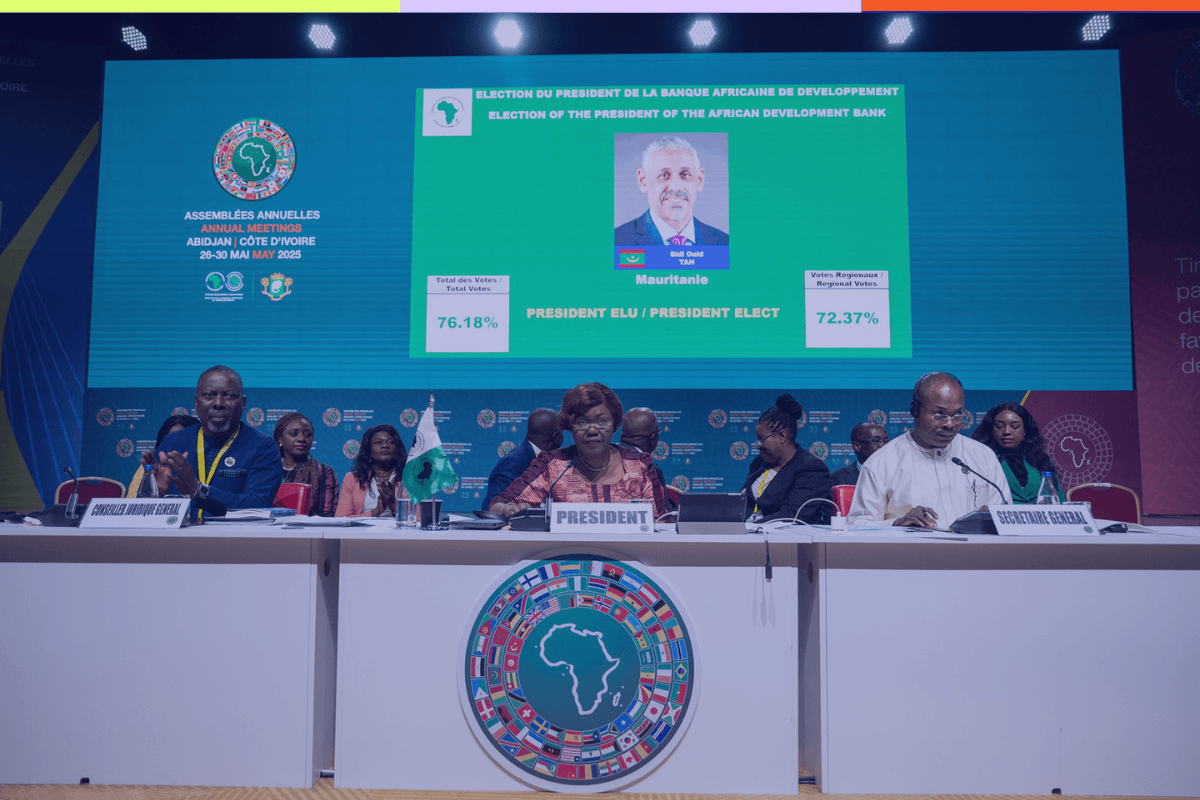A Missed Opportunity for Gender Equality at the African Development Bank

Share
The African Development Bank (AfDB) stands as a beacon of Africa's aspirations for economic independence, sustainable development, and continental integration. As one of the world’s most influential regional financial institutions, it wields the power to shape development agendas, mobilize critical resources, and influence public policy across the continent. Yet, in its six decades of existence, not once has a woman occupied its highest office.
As GWL Voices flagship report “Women in Multilateralism 2025” shows, across the world, financial governance institutions continue to be dominated by men. While progress has been made—with Kristalina Georgieva at the IMF, Ngozi Okonjo-Iweala at the WTO and Nadia Calviño at the European Investment Bank—regional development banks have yet to appoint women as presidents. This includes not only the AfDB, but also the Asian Development Bank and the Inter-American Development Bank. This is not due to a lack of qualified candidates but rather systemic barriers: gender bias, opaque nomination processes, and political horse-trading that often sideline women.
Advancing Gender Equality Requires Leadership That Reflects Africa’s Full Potential
Having a woman lead the AfDB would have been both symbolically powerful and substantively impactful. As stated by GWL Voices President, Susana Malcorra, and GWL Voices member, Amina Mohamed, a woman president could bring fresh perspectives to issues like informal economies, gender-based financial exclusion, and grassroots development. Moreover, it would send a message across the continent—and the world—that Africa is ready to lead on gender equality, not lag behind.
GWL Voices congratulates Sidi Ould Tah on his election as the ninth President of the African Development Bank Group. His extensive experience in African finance and leadership will undoubtedly play an important role at this pivotal moment for the continent’s development. However, we regret that this historic opportunity to break the pattern of male leadership in the institution was not seized. Since its founding in 1964, the Bank has yet to be led by a woman—an imbalance that does not reflect the talent, expertise, and vision women bring to the highest levels of economic governance.
We acknowledge the candidacy of Bajabulile Swazi Tshabalala of South Africa—an accomplished leader with deep institutional knowledge and a strong record in multilateral finance. Her candidacy represented a chance to affirm the AfDB’s commitment to more inclusive leadership at the very top. At GWL Voices, we remain steadfast in our belief that gender parity is not just a matter of fairness—it is essential to strengthening institutions and delivering on ambitious development goals like African Union’s Agenda 2063. We will continue to advocate for greater representation of women in global financial governance.
In a time when gender equality is increasingly recognized as a prerequisite for effective governance, the absence of female leadership at the helm of the AfDB invites serious reflection. It is not about if a woman can lead the African Development Bank, but why hasn't one yet?
To shift the status quo, concrete steps are needed. Member states of regional organizations must actively endorse female candidates. Civil society and women’s networks must also hold leaders accountable and elevate the profiles of qualified women. Platforms like GWL Voices can play a key role in advocacy, visibility, and coalition-building.